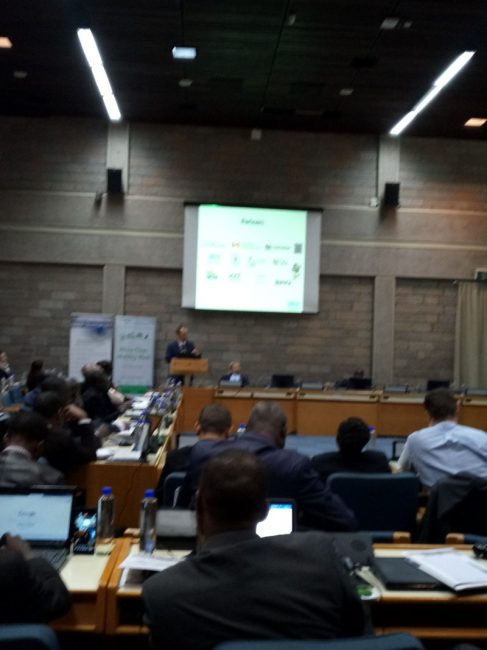With the global car fleet due to triple by 2050 and greenhouse gas emissions from transport growing faster than any other sector, West African states have set sights on 2050 to phase out dirty and inefficient fuel.

Bernard Koffi of the Economic Community of West African States (ECOWAS) made the disclosure on Thursday, march 15, 2018 at the ongoing African Clean Mobility Week taking in Nairobi, Kenya.
West Africa is believed to be Africa’s sub-region with the least fuel efficiency and economy levels as 80% of the vehicles across the sub-region are used vehicles while 72% of the vehicles used in ECOWAS countries are imported.
The challenges of attaining fuel efficiency and economy in West Africa, according to Koffi include absence of policies and strong fiscal measures against the importation of vehicles that are over the age limit; and high age limits for the importation of used vehicles. Age limit for the importation of used light duty vehicles (LDVs) in most West African states hover between eight and 15 years.
Other extant challenges include poor fuel quality, and road congestion leading to high carbon emissions.
These challenges notwithstanding, ECOWAS is confident of achieving fuel efficiency and economy at least by 50% by the year 2050 through the implementation of its Air Quality Agreement signed by ECOWAS ministers in 2009, and the Nationally Determined Contributions (NDCs) of all ECOWAS member states to the Paris agreement.
Mr. Koffi believes that the sub-region can achieve the target even before the target year by harmonising carbon emission standards and fuel specification, promoting clean vehicles and fuel economy, and strengthening institutional and regulatory frameworks on fuel consumption and carbon emissions.
“An example of these measures is the recent ban placed on the importation of dirty diesel by five West African countries,” he said.
It will be recalled that Benin, Ghana, Ivory Coast, Nigeria and Togo in 2016 announced measures to end the practice of European oil firms and traders who export to Africa, highly polluting fuels (derogatorily dubbed “African quality”) that could never be sold in Europe.
Effective July 1, 2017, the five West African states banned the importation of high-sulphur diesel fuels making the permitted levels of sulphur in imported diesel to fall from as high as 3,000 parts per million (ppm) to 50ppm. Meanwhile, Europe since 2009 fixed the maximum permitted level at 10ppm.
Speaking at the African clean mobility week, Erik Solheim, Executive Director of the United Nations Environment Programme (UNEP), commended the ban by the West African states.
“West Africa has sent a strong message that it is no longer accepting dirty fuels from Europe. Their decision to set strict standards for cleaner, safer fuels and advanced vehicle emission standards shows they are placing the health of their people first,” Solheim said.
Courtesy: PAMACC News Agency
